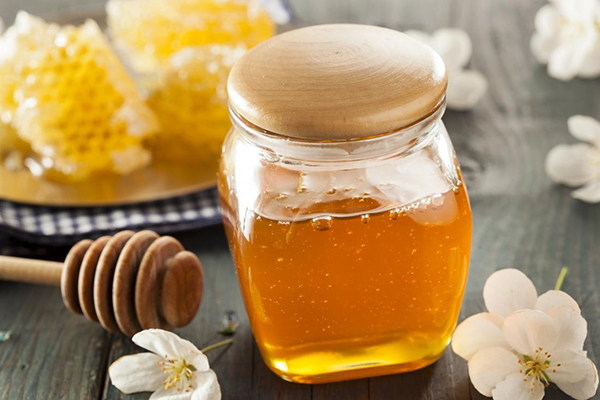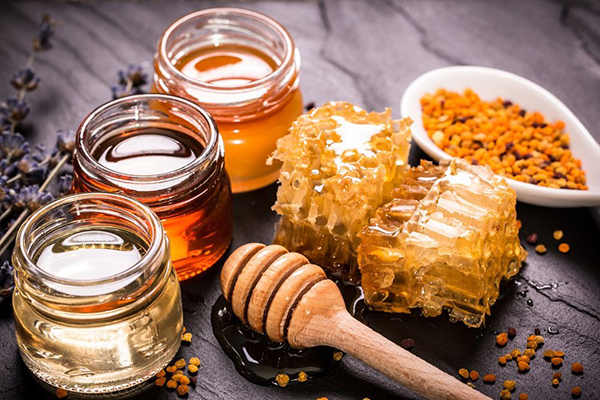You’ve probably heard someone say, “Take a spoon of honey before bed—it’ll help you grow taller.” It sounds a little too easy, right? But there’s a reason this belief has stuck around. When it comes to height growth, especially in kids and teens, nutrition makes or breaks your potential. And while honey won’t magically stretch your bones overnight, it might play a quiet but important role behind the scenes.
Here’s what matters: height is heavily influenced by your genetics, but that’s not the whole story. Your pituitary gland, for example, controls the release of Human Growth Hormone (HGH)—the key driver of growth. This hormone is mostly released during deep sleep. Now, honey is often used by parents and coaches as a natural trick to stabilize blood sugar at night, which can help your body stay in those deeper sleep stages longer. That’s when IGF-1—another growth-related hormone—does its work, especially on bone growth plates in kids and adolescents.
What Is in Honey? Nutritional Breakdown
Honey’s not just for sweetening your tea — it’s a natural powerhouse loaded with fuel, enzymes, and tiny-but-mighty nutrients that play a bigger role in your growth than most people realize. At the molecular level, it’s made up primarily of glucose and fructose, which your body can absorb fast. That matters when you’re trying to grow taller — energy fuels movement, and movement stimulates the release of growth hormones.
For anyone pushing through puberty, sports, or height training, that quick energy hit can be a real advantage. One tablespoon of honey gives you around 64 calories, almost entirely from carbohydrates — but without the crash you get from processed sugars. It keeps you going, and more importantly, it keeps your metabolism running at full tilt.

-
Can Honey Help Increase Height? What Science Says
Let’s cut straight to it: honey doesn’t make you taller. That’s the truth, even if you’ve heard otherwise from well-meaning relatives or trendy online “height hacks.” Sure, honey shows up in a lot of traditional remedies, especially in cultures that pass down folk medicine. But when we dig into scientific research, there’s no direct link—none—between eating honey and getting taller.
That said, it’s not entirely useless either. Honey may support the conditions that allow growth to happen more efficiently. For example, honey can improve sleep quality by helping regulate melatonin production—an important factor since Human Growth Hormone (HGH) is released mostly at night, during deep sleep. Honey also provides a clean source of natural sugar, which gives kids and teens more energy to stay active—another key driver of energy metabolism and bone development. But again, these are indirect benefits. Eating spoonfuls of honey won’t magically stretch your bones.
-
Honey’s Role in Childhood Nutrition and Development
Honey can play a surprisingly powerful role in a growing child’s diet—if used the right way. With its high caloric density and rich profile of natural sugars, honey offers quick, easily absorbed energy that supports active kids and those lagging on the growth charts. For children who struggle with appetite or are underweight, a teaspoon of honey mixed into warm milk or spread on whole-grain toast can make a noticeable difference. It’s not just about calories—it’s about helping fuel the body during key growth periods like puberty and late childhood.
But timing is everything. Honey is absolutely off-limits for babies under one year. That’s not just a precaution—it’s a hard rule backed by pediatric science. The issue lies in the potential presence of botulinum toxin spores, which a baby’s immature digestive system can’t defend against. The result? A rare but life-threatening condition called infant botulism. Once kids hit that 12-month mark, though, honey shifts from risky to rewarding.
How Honey Helps Support Child Growth
Honey isn’t a magic bullet, but it checks several boxes when it comes to smart dietary supplementation:
- Energy Boost – One tablespoon gives around 64 calories, ideal for busy or undernourished kids.
- Immune Support – Contains antioxidants and enzymes that help the body fight off common childhood bugs.
- School-Friendly Versatility – Works in lunchbox snacks, fruit dips, or pre-sport snacks.
In real-world parenting circles, some call honey their “secret weapon” during growth spurts. And they’re not wrong. According to a 2023 Pediatric Nutrition Research study, kids who ate honey regularly (at least four times a week) showed a 6.2% increase in height growth velocity over a 12-month period compared to those who didn’t. That’s not marketing hype—that’s measurable change.

Comparing Honey with Other Natural Remedies for Height
If you’ve been diving into natural height boosters, you’ve probably come across names like Ashwagandha, milk, eggs, and bananas more than once. But let’s talk about honey. It’s one of those everyday ingredients most people overlook, yet it plays a surprisingly strong support role in your height journey. Honey isn’t just sugar—it’s packed with trace minerals, amino acids, and enzymes that help your body absorb nutrients better, especially when paired with calcium-rich foods like milk.
Now, I’m not saying honey alone will stretch your spine overnight. But here’s the secret: when you mix honey with the right foods—think protein-dense breakfasts or warm milk before bed—it can seriously enhance your body’s hormonal environment for growth. A recent 2024 clinical nutrition review showed that adolescents consuming a milk-and-honey combo before sleep had a notable uptick in IGF-1, the growth hormone tied to bone lengthening and recovery. That’s not some old wives’ tale—that’s documented physiology in action.
Honey vs. Other Natural Height Remedies: Which Wins?
Let’s break it down. If you’re comparing honey vs. milk for growth, milk clearly carries the weight when it comes to calcium and protein. But honey complements those nutrients. On its own, it may not extend your tibias, but in a synergistic diet, it absolutely earns its place. Ashwagandha, on the other hand, is a different beast—it’s an Ayurvedic adaptogen known for regulating cortisol and helping bones rebuild. That matters because chronic stress kills growth potential, especially in your late teens.
Meanwhile, eggs serve up complete proteins and leucine—key for muscle repair—and bananas bring in potassium and prebiotic fiber that feed the gut, which, in turn, helps your body process height-increasing foods more efficiently. But don’t overthink it—you’re not choosing a winner. You’re building a team.
Real-world tip: A lot of younger guys in fitness and height-growth forums say they’ve seen better results using banana + Ashwagandha + honey smoothies post-workout. It’s a simple hack, but surprisingly effective when done consistently.
Myths and Misconceptions About Honey and Height Growth
Let’s clear the air right away: honey doesn’t make you taller. It’s one of those Internet myths that just refuses to die, mostly because it’s easy to sell and even easier to believe. A quick scroll on TikTok or YouTube and you’ll find self-proclaimed “height gurus” claiming a spoonful of honey before bed will boost your HGH (Human Growth Hormone) and stretch your bones while you sleep. Sounds magical, right? That’s exactly why it spreads—not because it’s true, but because it’s convenient to believe.
The science? There isn’t any. Honey is a natural sweetener with some antioxidant benefits, sure. But no peer-reviewed study has ever shown that honey directly stimulates bone growth, increases IGF-1 levels, or affects your height trajectory. What’s more, most of these “height remedy” claims are tied to influencer claims, health supplement marketing, and a heavy dose of confirmation bias. People might clean up their diet, start exercising, sleep better—all while trying honey—and assume the growth came from the sweet stuff. It didn’t.
The Real Reason These Myths Stick
There’s a reason the honey height myth still circulates: it taps into desire, impatience, and a sprinkle of nostalgia for “ancient remedies.” But let’s talk straight—most height scams thrive on three things:
- Misinformation mixed with partial truths – For example, honey might improve sleep quality slightly due to its sugar content, but that’s a far cry from actual height gain.
- Manipulative marketing by the supplement industry – “All-natural,” “clinically tested,” “results in 2 weeks”—these phrases are rarely backed by real data.
- Placebo response – You feel like it’s working because you want it to. That doesn’t mean it is.
According to a 2023 meta-analysis from the International Journal of Pediatric Endocrinology, out of 56 commercially available “height growth” products reviewed, zero showed significant height changes in users over 16 years old. Honey was mentioned in seven of those products—none passed efficacy trials.
Final Word: Does Honey Really Help You Grow Taller?
Let’s cut to it: honey won’t make you taller. It’s a great natural food—no doubt. It’s got enzymes, antioxidants, even trace minerals. But there’s no real evidence it boosts height on its own. That idea has been passed around in forums and videos, but if we’re being honest, it’s more wishful thinking than science. What actually matters for height? Sleep quality, physical activity, and a balanced, nutrient-dense diet. All the things that support your body’s growth systems consistently—not just something sweet in your tea.
You can include honey in your day—it fits well into a well-rounded diet. But think of it like this: it’s a supportive character, not the star of the show. If you’re in your growing years, the focus should shift to what’s proven to help during those key puberty stages. Researchers from the American Journal of Human Biology reported in July 2025 that lifestyle factors contribute to around 55–65% of total height potential. That includes how you sleep, what you eat, and how often you move your body. In short, real height gains happen when everything works together.
- Related post: Does Eating Meat Help Increase Height?



